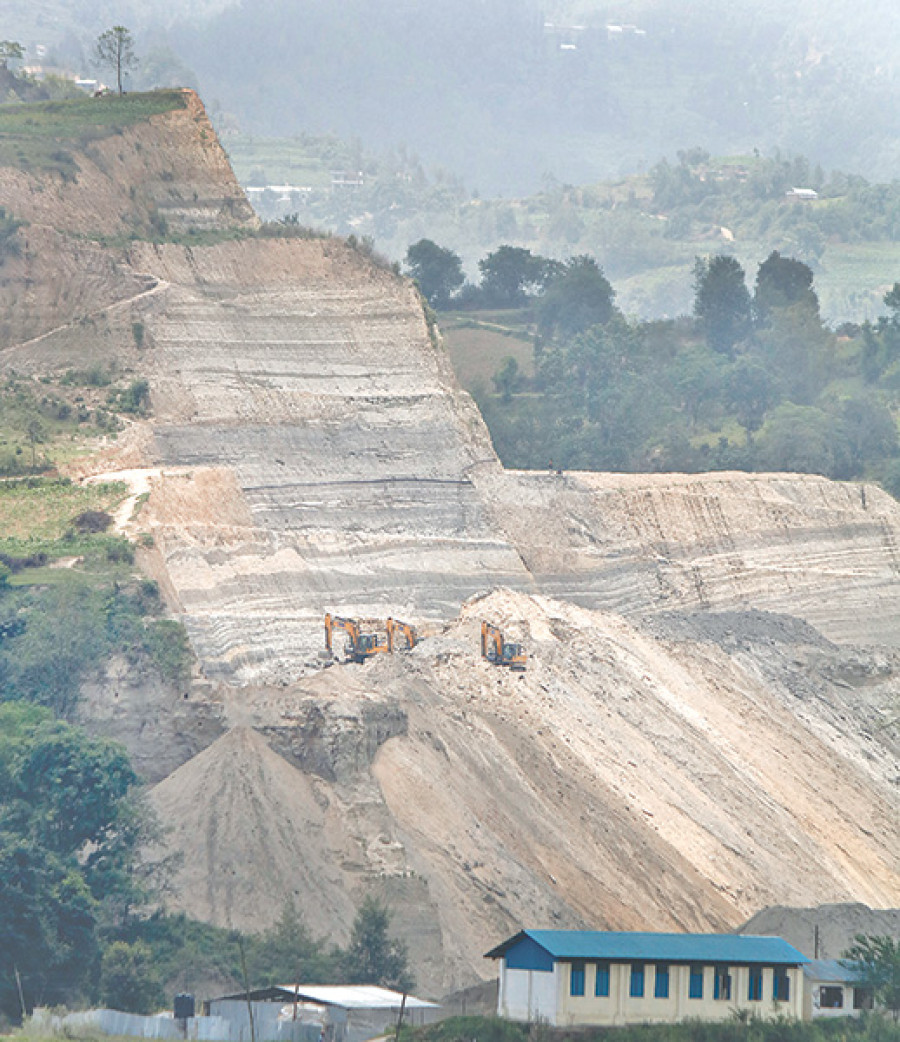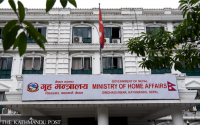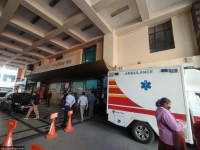National
Project report delay won’t hit expressway works, says Army
The Nepal Army, one-year into building the Kathmandu-Tarai Expressway without the detailed project report, has said preparations for the DPR will not affect progress of the national pride project to be completed within four years.
Binod Ghimire
The Nepal Army, one-year into building the Kathmandu-Tarai Expressway without the detailed project report, has said preparations for the DPR will not affect progress of the national pride project to be completed within four years.
The national defence force is carrying out preliminary works based on the detailed feasibility study prepared by the Asian Development Bank in 2008. The Army was assigned on August 11 last year to complete the expressway within four years. It’s been 13 months since construction formally began, albeit without a DPR.
Soosung Engineering, a Korea-based company, was selected this week to prepare the report. Plans are afoot to sign a deal with the company on September 29. The company will get four months to prepare the DPR. Project chief Major General Yogendra Khand said the report would incorporate all the works completed by the Army so far. Khand claimed that around 25 percent of the entire expressway works had been over.
“We have the detailed engineering survey and design prepared by ourselves to proceed with works in the lack of a DPR,” Khand told a news conference on Thursday. “The delay in DPR will not affect our deadline.”
A detailed study has five pillars—alignment, survey and design, cost estimation, environment impact assessment, and economic and financial analysis, most of which are covered by the ADB’s report. Compared to the decade-old study, the DPR will have a better picture of the estimated cost and detailed designs of high-pier bridges and tunnels, the NA claims.
Experts agree with the Army’s view that it is not incorrect in principle to carry out non-technical works such as clearing the trees and widening tracks even without a DPR. Surya Raj Acharya, an expert on public policy and infrastructure, told the Post that it would have been better, though, had the DPR been in place before construction.
Acharya, however, cautions that the Army should not be doing intense filling works without a technical study to guide it. Since the Army has started off without a DPR, a senior official from the Department of Roads suggested without wanting to be named, it should rather focus on a detailed design now.
Backtracking on its claim to be a major builder, the NA now says it will have a more managerial role in completing the undertaking within the stipulated time frame. A majority of the works will be carried out by domestic or international contractors as the Army has no experience in doing technically challenging projects such as the expressway although it has opened tracks for over two dozen crucial roads in difficult terrains. The Army had opened the expressway track in 2007.
While the NA has got charge of the project, domestic or international contractors will be tasked with most of the major works. Clearing the forest along with cutting and filling of soil in some parts will be done by the Army. Besides, 28 domestic companies are carrying out the cutting and filing works. According to Khand, some 25 percent of the 99 bridges will be built by domestic contractors while international bids will be invited for the remaining bridges and three tunnels.
The 76 km expressway is expected to shorten travel time from Nijgadh in Bara to the Capital to an hour. It will have 6.07 kilometres of tunnel. Though the cost estimated by the ADB study was Rs90 billion, it has now soared to Rs132 billion.




 9.21°C Kathmandu
9.21°C Kathmandu














